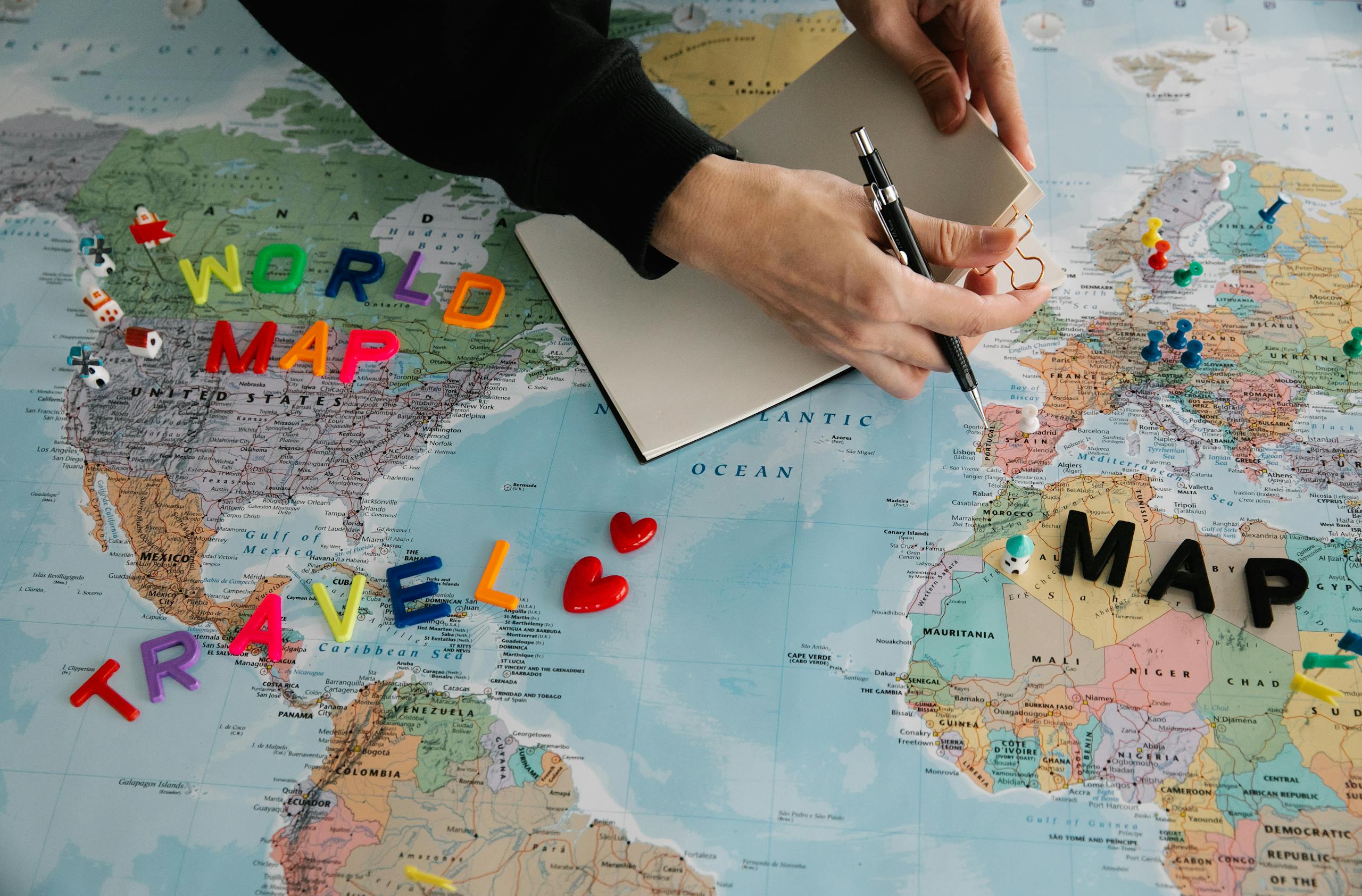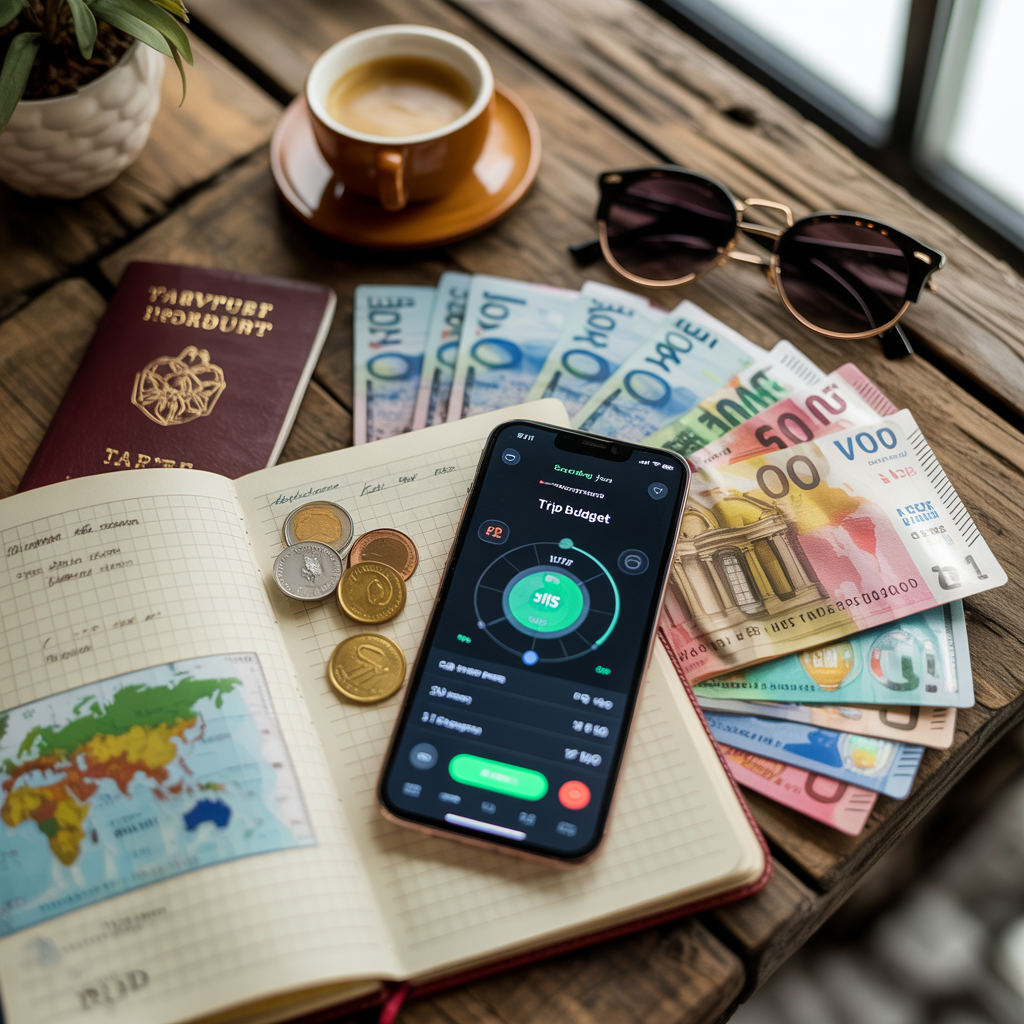AI for Travel Planning
How to Use AI for Personalized Travel Recommendations and Itineraries
Planning a trip can often be overwhelming, with countless options and details to consider. However, the rise of artificial intelligence (AI) is transforming the way we approach travel planning. Today, AI for travel planning offers travelers personalized recommendations and step-by-step itineraries tailored to their unique preferences and needs. By leveraging AI tools, you can streamline your planning process, save time, and ensure a more enjoyable and customized travel experience.
How to Use AI for Personalized Travel Recommendations and Itineraries
In this guide, we’ll explore how to effectively use artificial intelligence for journey arranging. We’ll dive into step-by-step guides on how to harness specific AI tools, compare various platforms, and provide tips on creating effective prompts to get the best results. Whether you’re planning a short getaway or an extended vacation, understanding how to utilize AI can significantly enhance your travel planning process.
To start, let’s explore what AI for travel planning actually entails and how it can revolutionize your travel experiences.
What is AI for Travel Planning?
It refers to the use of advanced artificial intelligence algorithms and tools to assist travelers in creating personalized travel experiences. These AI systems can handle a wide range of tasks, from suggesting destinations and activities to optimizing itineraries and managing bookings. By analyzing your personal preferences—whether it’s your favorite types of activities, budget considerations, or ideal weather conditions—AI provides tailored recommendations that make planning more efficient and enjoyable.
Furthermore, these tools don’t just stop at surface-level recommendations. AI-driven travel tools learn from your past behaviors and preferences, allowing them to refine their suggestions over time. For instance, if you frequently book trips to coastal cities, the AI can recommend similar destinations that align with your interests. Moreover, AI considers various factors such as the best time to visit specific locations, hidden gems that match your preferences, and cost-saving strategies for flights and hotels.
The Advantages of AI in Travel Planning
The integration of AI into trip organazing offers several key advantages that can enhance your travel experience:
- Personalized Recommendations: AI tools analyze your preferences and travel history to offer highly personalized suggestions, ensuring your trips are tailored to your specific interests.
- Time Efficiency: By automating the research and booking process, AI significantly reduces the time you need to spend on planning, allowing you to focus on the excitement of your upcoming trip.
- Cost Savings: AI tools often include features that help you find the best deals on flights, accommodations, and activities, maximizing your budget and ensuring you don’t miss out on special offers.
- Data-Driven Insights: AI platforms process vast amounts of data, including user reviews, pricing trends, and travel advisories, providing you with the most accurate and relevant information to make informed decisions.
Step-by-Step Guide
Let’s walk through how you can start using these tools to plan your next trip.
Step 1: Choosing the Right AI Tool
The first step in leveraging AI for your travel planning is selecting the appropriate tool for your needs. There are several AI-driven platforms available, each offering unique features and capabilities. Here’s a look at some of the most popular options:
- TripHobo: Known for its user-friendly interface, TripHobo allows you to create custom itineraries based on your preferences. The AI suggests activities, restaurants, and attractions, and even calculates the optimal route for your trip.
- Google Travel: Google’s AI-driven platform, Google Travel, offers a comprehensive travel planning experience. It consolidates your reservations, suggests things to do based on your past searches, and keeps you updated with real-time travel advisories.
- Hopper: Hopper uses AI to predict future flight and hotel prices, helping you decide the best time to book to get the lowest rates.
- Trip Planner AI: Trip Planner AI is a tool that leverages AI to build customized itineraries, suggesting not only destinations but also activities, accommodations, and even restaurants that match your interests.
- Aicotravel: Aicotravel is another AI-powered platform that focuses on personalized travel recommendations, offering detailed itineraries based on user preferences and real-time data.
- Wonderplan: Wonderplan allows you to create and customize your travel itinerary with AI, providing insights on the best activities and attractions based on your input.
- MindTrip: MindTrip uses AI to analyze your travel preferences and suggest unique and personalized trip ideas, focusing on creating unforgettable experiences.
Once you’ve chosen a tool, you can begin exploring its features to create a personalized itinerary.
Step 2: Setting Up Your Profile and Preferences
After selecting an AI tool, the next step is to set up your profile. Most AI travel tools require you to input your preferences, such as preferred destinations, types of activities, budget range, and travel dates. Some platforms also ask for details like your past travel experiences and the kind of accommodation you prefer.
Providing this information enables the AI to tailor its recommendations to your specific needs. For example, if you enjoy adventure sports, the AI might suggest destinations known for activities like hiking, surfing, or skiing. If you prefer cultural experiences, the AI could recommend cities with rich histories, museums, and local festivals.
Step 3: Generating Travel Recommendations and Itineraries
With your profile set up, you can now start generating travel recommendations and itineraries. Simply enter your travel dates and any specific interests or destinations you have in mind, and the AI will do the rest. The tool will provide a list of suggestions, including destinations, accommodations, activities, and even local restaurants.
One of the key benefits of using smart technology for trip organizing is that it can optimize your itinerary to make the most of your time. For example, if you’re visiting a new city for just a few days, the AI can prioritize must-see attractions and suggest the most efficient routes to avoid wasting time in transit.
Step 4: Comparing Different AI Tools
While many AI tools offer similar features, they each have their own strengths and weaknesses. It’s a good idea to compare different platforms to see which one best suits your needs. Here are a few things to consider when comparing AI travel tools:
- Ease of Use: Some platforms are more user-friendly than others. Look for a tool with an intuitive interface that’s easy to navigate.
- Accuracy of Recommendations: Check user reviews to see how accurate and reliable the recommendations are. Some AI tools might be better at suggesting activities, while others excel at finding the best deals.
- Cost: While many AI travel tools are free, some offer premium features for a fee. Consider whether the paid features are worth the investment based on your travel needs.
- Integration with Other Services: Some AI tools integrate with other travel services, like flight booking sites or hotel reservation platforms, which can streamline your planning process.
Step 5: Crafting Effective Prompts
To get the most out of AI for travel planning, it’s important to know how to craft effective prompts. When interacting with AI tools, the quality of the recommendations you receive often depends on how you phrase your requests. Here are a few tips for creating effective prompts:
- Be Specific: Instead of asking for general recommendations, be specific about what you’re looking for. For example, instead of saying “Find me a hotel,” try “Find me a boutique hotel in Paris near the Eiffel Tower with a budget of $200 per night.”
- Include Preferences: If you have specific preferences, include them in your prompt. For example, “I prefer quiet neighborhoods with easy access to public transportation.”
- Ask for Alternatives: If you’re not sure about a particular recommendation, ask the AI for alternatives. For example, “Can you suggest similar destinations with warmer weather?”

Tips for Getting the Most Out of AI Travel Tools
To fully leverage the power of AI, here are some additional tips:
- Regularly Update Your Preferences: As your travel preferences evolve, make sure to update your profile in the AI tool. This ensures that the recommendations remain relevant and tailored to your current needs.
- Use Multiple Tools: Don’t rely on just one AI tool. Experiment with different platforms to see which one offers the best recommendations for different aspects of your trip, such as flights, accommodations, and activities.
- Take Advantage of Notifications: Many AI tools offer notifications for price drops or last-minute deals. Enable these notifications to snag the best deals as they become available.
The Future of AI in Travel Planning
The integration of AI in travel planning is just beginning. As technology continues to evolve, we can expect even more sophisticated tools that offer enhanced personalization, real-time updates, and seamless integration with all aspects of travel. Imagine a future where your AI assistant not only plans your trip but also adjusts your itinerary in real-time based on weather changes, local events, or your spontaneous interests.
A New Era of Travel Planning
The use of artificial intelligence for journey arranging is ushering in a new era where travelers can enjoy more personalized, efficient, and cost-effective trips. By leveraging AI tools, you can take the stress out of planning and focus on what truly matters—enjoying your journey. Whether you’re a seasoned traveler or planning your first big trip, AI offers endless possibilities to enhance your travel experiences.













